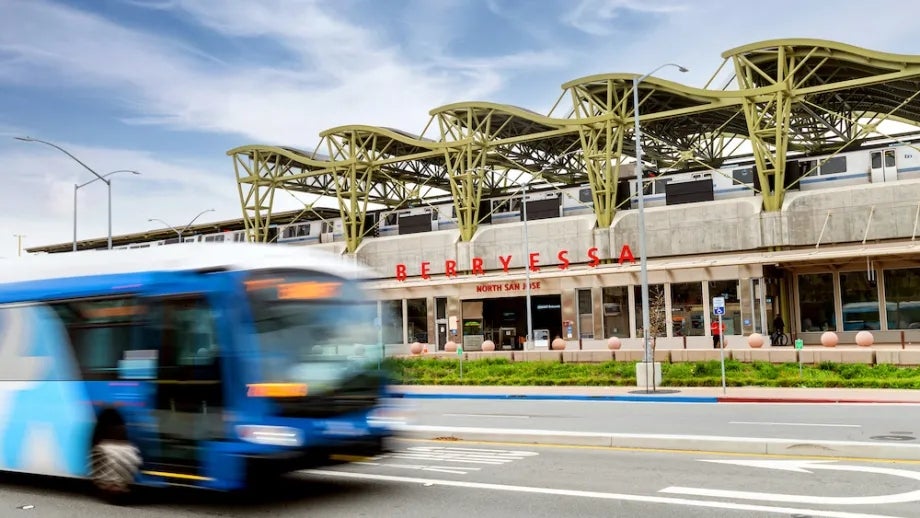Connect Bay Area: Regional Transportation Revenue Measure
MTC is sponsoring a transportation revenue measure that would appear on the ballot in all nine Bay Area counties in 2026. If approved by voters, tax dollars would help meet the Bay Area's funding needs to create a world-class transportation network.
MTC in January 2024 voted to pursue legislation in Sacramento in 2024 that would enable Bay Area voters to consider a tax measure as early as November 2026.
Connect Bay Area Act (SB 1031)
In March 2024, State Senators Scott Wiener of San Francisco and Aisha Wahab of Hayward released Senate Bill (SB) 1031 — the Connect Bay Area Act — which would allow MTC to place a measure on the ballot in all nine Bay Area counties or a subset in November 2026 or later. The bill also identifies eligible expenditures consistent with the expenditure categories (transit transformation, safe streets, connectivity, and flexible) approved by the Commission. One difference from the Commission-approved bill framework is a $750 million annual floor for transit operations investments.
Another provision in SB 1031 is a study requirement related to Bay Area transit agency consolidation. The language would require the California State Transportation Agency to select a transportation institute to assess the advantages and disadvantages of consolidation of Bay Area transit agencies in consultation with impacted stakeholders and prepare a consolidation plan to implement recommendations from the assessment.
Read more about the Connect Bay Area Act (SB 1031) and MTC’s position on the provisions in the bill.
Goals of the Regional Transportation Measure
MTC’s core goal in supporting a transportation revenue measure is to help the Bay Area meet its need for a climate-friendly transportation system that is safe, accessible and convenient for all. Focus areas include:
- Protect and enhance transit service. Ensure that current resources are maintained and used effectively; and enhance service frequency and areas served.
- Make transit faster, safer and easier to use. Create a seamless and convenient Bay Area transit system that attracts more riders by improving public safety on transit; implementing the Bay Area Transit Transformation Action Plan; and strengthening regional network management.
- Enhance mobility and access for all. Make it safer and more accessible for people of all ages and abilities to get to where they need to go. Preserve and improve mobility for all transportation system users, including people walking, biking and wheeling.
Read the Commission’s Vision Statement and Key Provisions for the Regional Transportation Revenue Measure.
Proposed Expenditure Categories
- Transit transformation: Sustain, expand and improve transit service for both current and future riders; accelerate customer-focused initiatives from the Bay Area Transit Transformation Action Plan and other service improvements that are high priorities for Bay Area voters and riders; and help fund the transition to zero-emission transit.
- Safe streets: Transform local streets and roads to support safety, equity and climate goals, including through pothole repair, investments in bicycle/pedestrian infrastructure, safe routes to transit and other safety enhancements.
- Connectivity: Fund mobility improvements that close gaps and relieve bottlenecks in the existing transportation network in a climate-neutral way.
- Flexible: Ensure that each county receives a minimum benefit of 70% of the total tax proceeds and then use any remaining funds to first address outstanding transit operating shortfalls followed by investment in regional priorities.
Review the proposed expenditure categories and funding amounts by category.
Additional Details
MTC staff recommend raising at least $1 billion to $2 billion per year for robust investments in safe streets and other capital improvements, to improve and expand transit service, and to help Bay Area transit agencies operate their services.
Questions or comments? Please email ConnectBayArea@bayareametro.gov.

